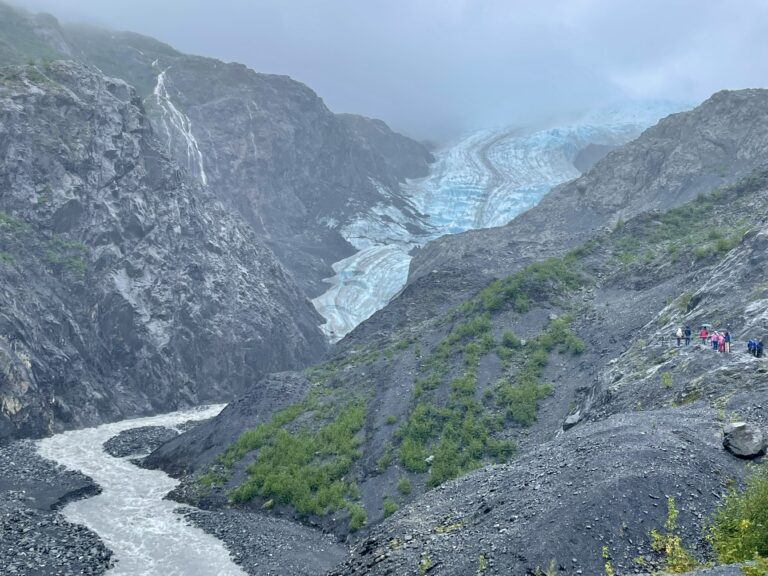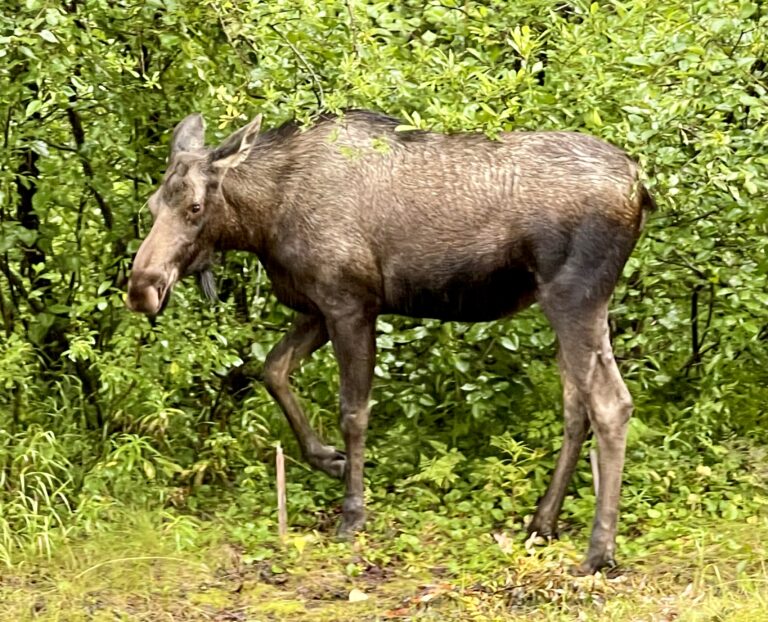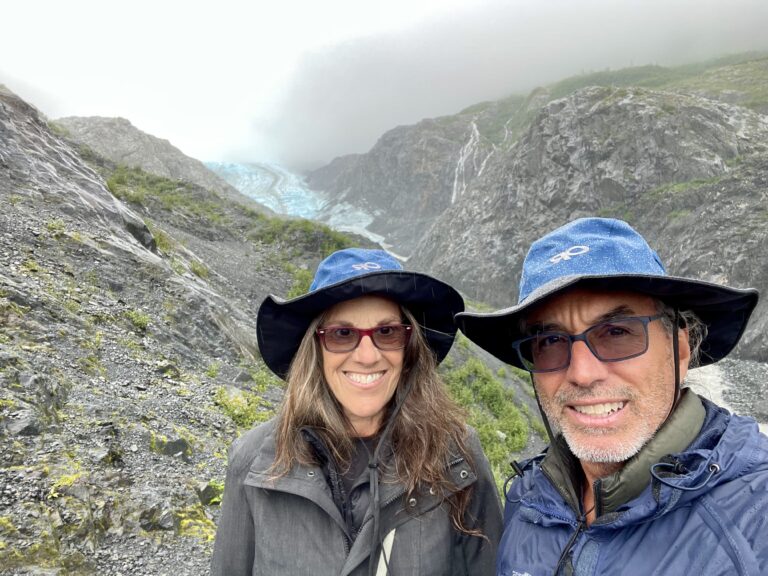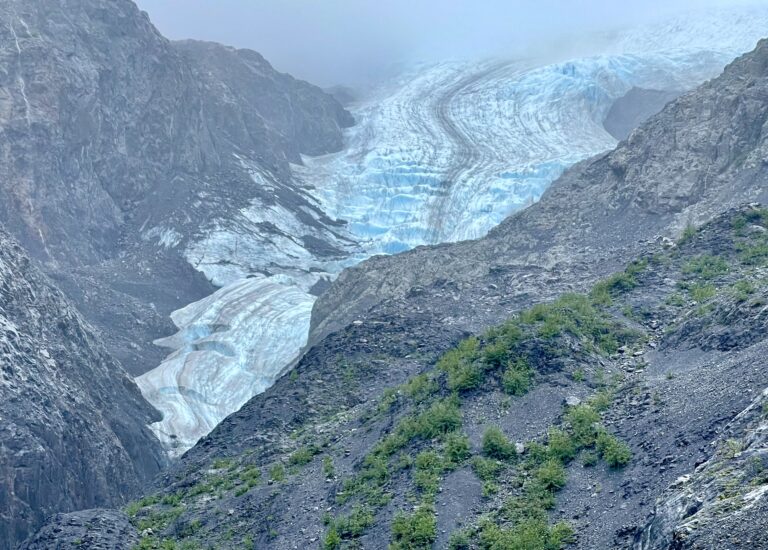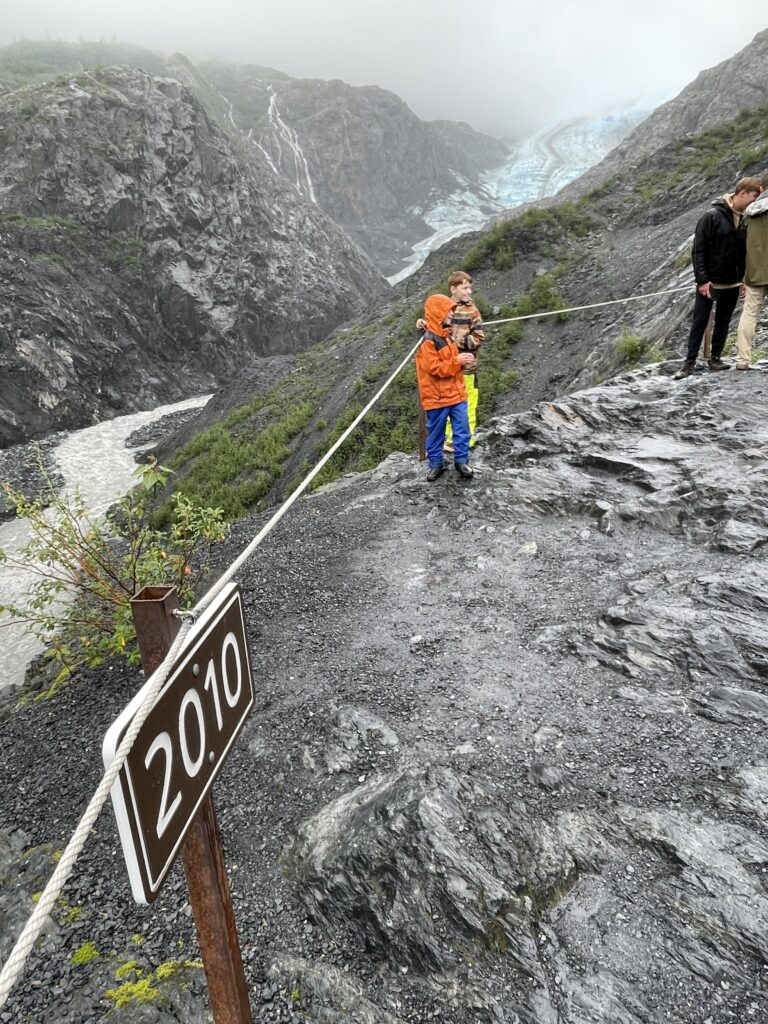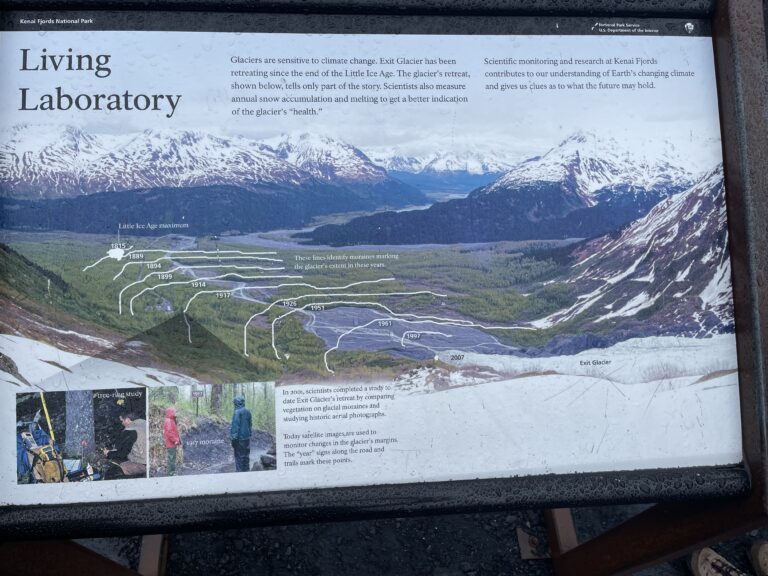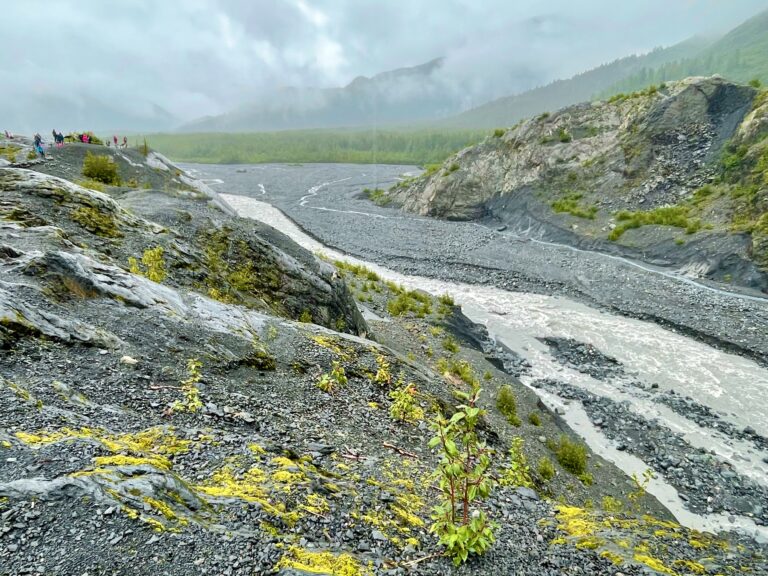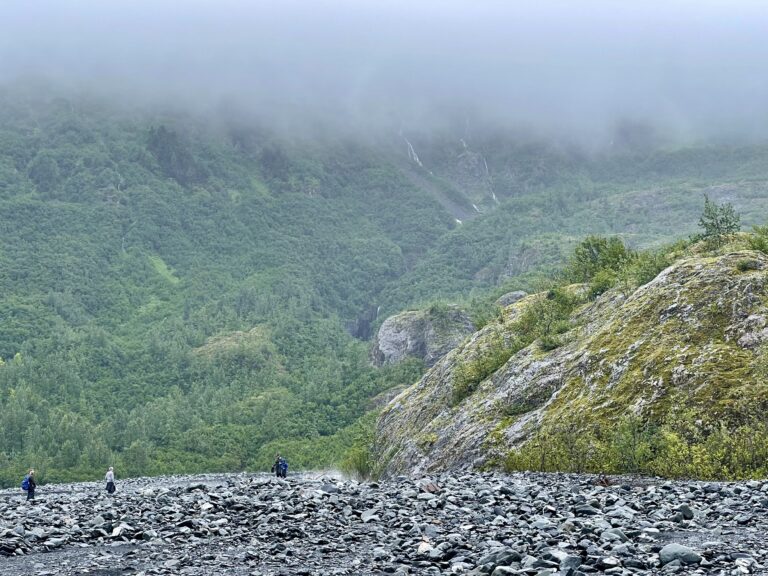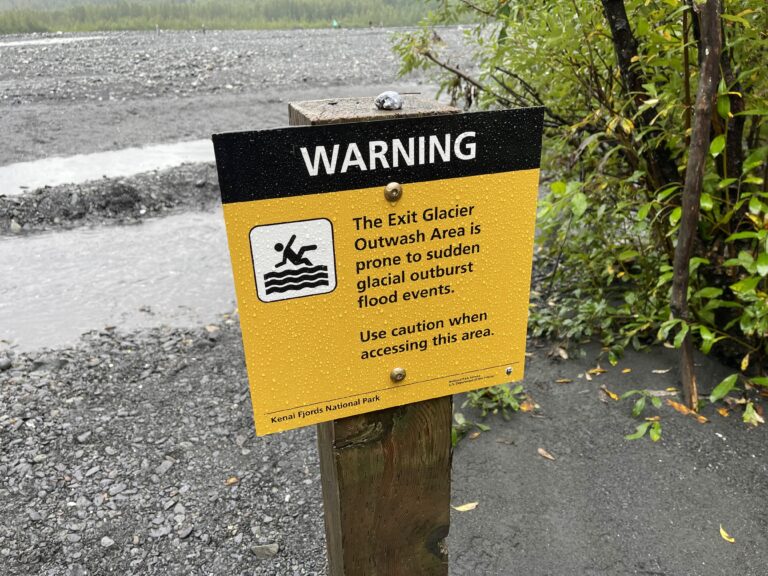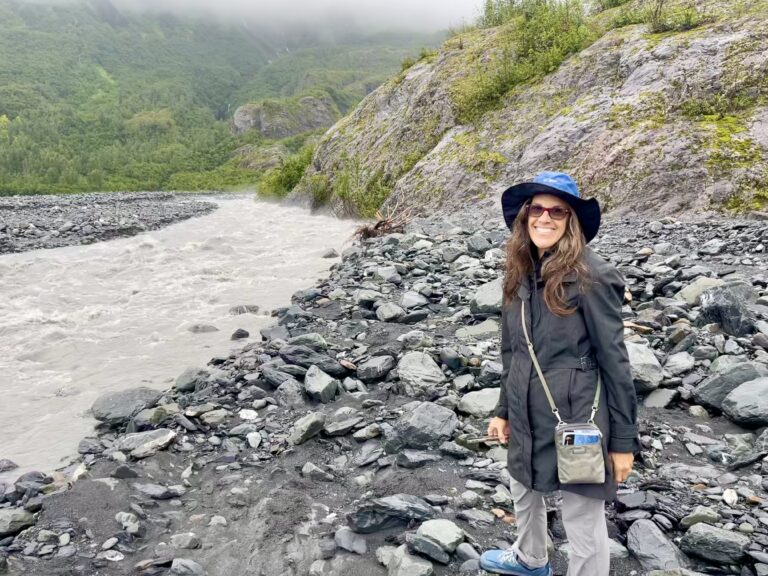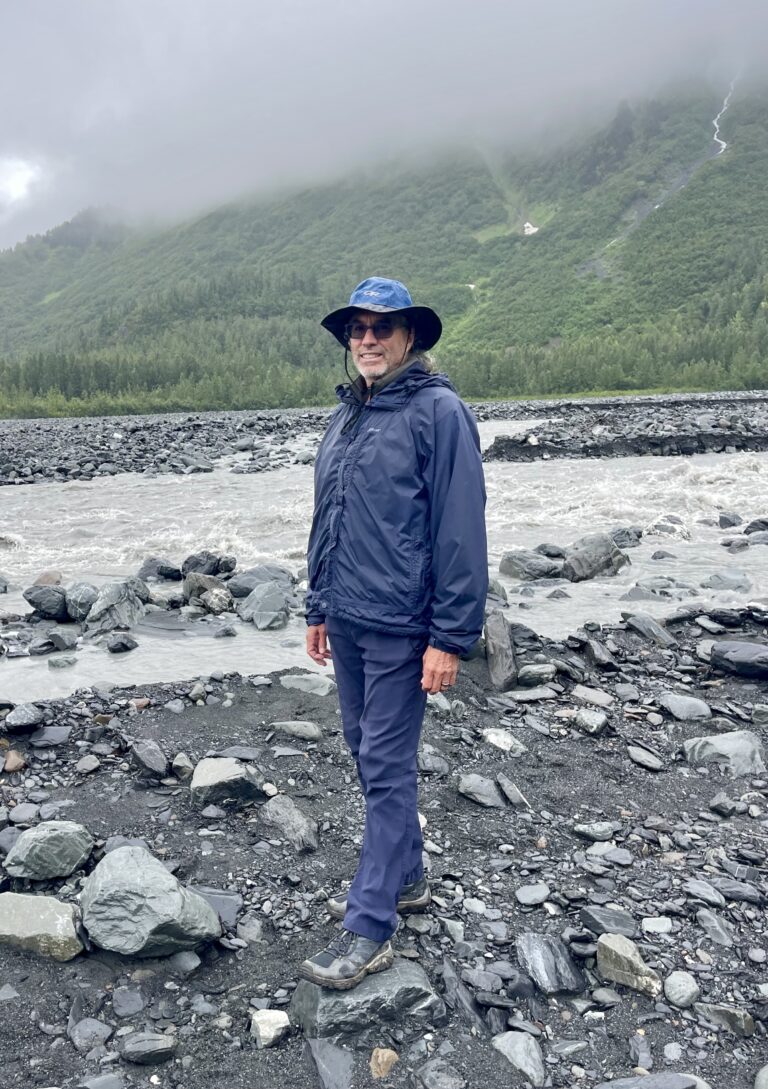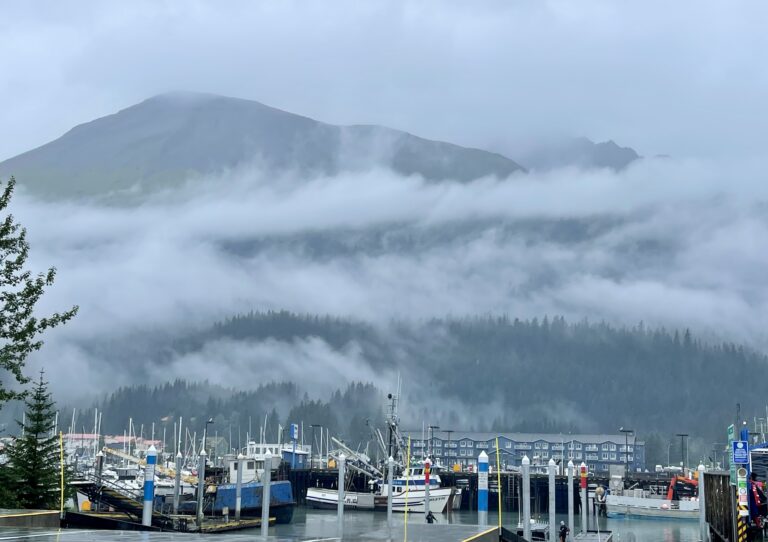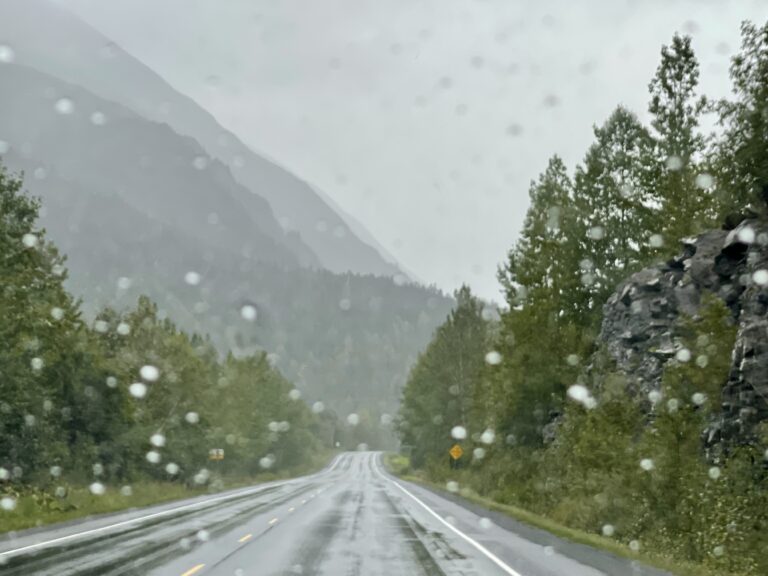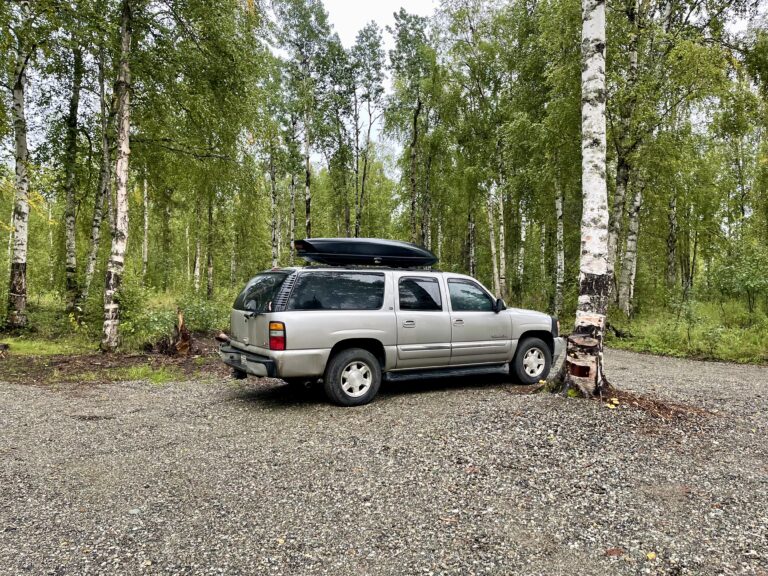August 20, 2020
It rained on and off during the night and the sound on the roof of the cozy cabin overlooking the bay and mountains lulled us to sleep.
We checked out of the cabin and headed to Exit Glacier in Kenai Fjords National Park. It was only about 50 miles away as the crow flies but because there are few roads in most of Alaska, we had to drive three-and-a-half hours and part way back to Anchorage to get there. The scenery was again spectacular as we drove along Cook Inlet in heavy rain, eventually turning east and south towards Seward. We’d decided to make the journey there regardless of the weather.
Even with the wet weather, the parking lot at the trailhead was, unexpectedly, almost full. We donned rain gear and headed out on a rather crowded two-mile hike that steadily climbed until suddenly the fantastically blue glacier came into view.
An outflow below the glacier became a rushing river from the melting glacier and the steady rain. As we walked off-trail down to the outflow, we could hear the muted thuds of large boulders being rolled down the turbulent glacial-silted water.
We wound our way back along a different trail that required a few water crossings. There was no getting away from water here.
Back at the truck, we drove 15 minutes away to the small town of Seward. A port town where cruise ships frequently dock, Seward’s streets are typically filled with tourists in August, but rain came early this year and few people were out. The low clouds and rain hid the surrounding mountains but the town was still quite charming.
Where Homer was more of a working fishing town and rough around the edges, Seward was more polished with a beautiful marina, neat houses and a giant cruise ship dock. We’d still been hoping to take a boat out on a glacier tour but the heavy rain, projections for more of the same in the coming days in the Kenai Peninsula, and the complete absence of available places to stay convinced us to leave Seward altogether after a quick drive along the waterfront.
Back on the road, the rain continued as we headed north, back to Anchorage. Once there, I picked up the part I (hoped) I needed to fix the truck though that would have to wait until I could find some dry ground as I’d have to crawl under the truck. We found (relatively) cheap gas in Anchorage (thanks, Costco) and left town heading north where, we hoped, we’d get away from the rain.
Susan found us a free campground an hour or two north of Anchorage along a river. Though we hadn’t left Anchorage until around 8:00 pm it was still light until 10:45 so we had plenty of time. The campground was located near a popular fishing spot and a number of locals were enjoying fishing in the river.
We walked down steep, slippery-when-wet stairs built into a steep bank to check out the river and watch the fishermen. En route, Susan became enthralled with the mushrooms that had sprouted up all around.

